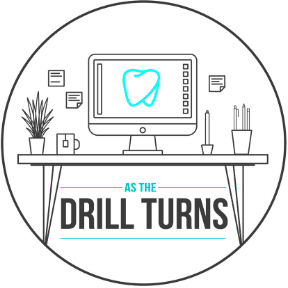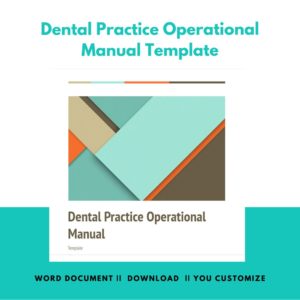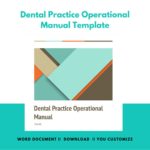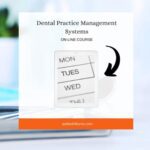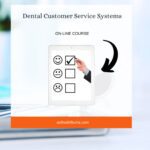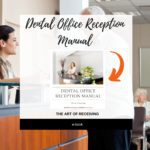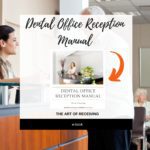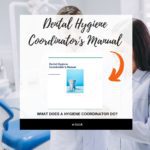Dental Office Periodontal Conversations Every Day
Dental office periodontal conversations are an every day occurrence in our dental world. In fact, I fear they are so common that we might neglect their importance in our patients’ lives. And because we may even down play the “disease” factor, our patients may do so as well. With that in mind, we do well to remember that more adult patients have periodontal disease than those who do not. So, we will continue to have lots of these conversations. And it’s our responsibility in the dental world to help educate our patients. As dental hygiene coordinators and in various administrative roles, we have great responsibility!
We may even have just as much of a role in patient education as clinicians. Because if we have established the relationships we need with our patients, they will ask us questions. They might even be afraid to ask the dentist or hygienist the questions they could ask us! Like, “Do I really need to do this?” or “Aren’t all cleanings really the same?” and even “What’s the worst that could happen if I skip a cleaning?”
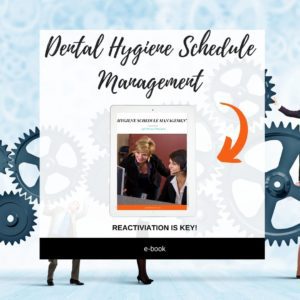
Prepare The Entire Team With Periodontal Scripts
Maybe you’ve been following my blog and you know how I feel about scripts? Or maybe this is the first article of mine you have read? Either way, here’s the scoop! I’m a huge “script” promoter! Because I believe we want everyone on the team saying almost exactly the same thing all the time! Then we don’t have to wonder what someone else said to the patient on our team. And we don’t have to wonder what to say ourselves! Let’s stick together on our all important dental office conversations! And perio talk is a conversation with scripting.
Remember, most of our dental office conversations are pretty similar. Of course there are some differences. But for the most part, we talk about the same things several times a day in our practices. And this makes it easy for us to begin to write our scripts. Let’s consider our periodontal conversations and the things patients say about their disease or their appointments. And what we might be able to say in response.
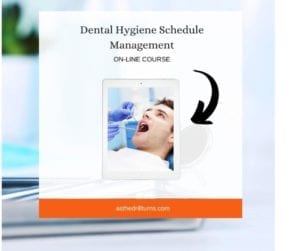
Dental Office Periodontal Conversations – Money Talk
Initial conversations about the cost of periodontal treatment can be a shock to patients. This is especially true if a patient has not received any extensive dental treatment or active periodontal care before. And if they are just hearing they have a disease, they may also be in a bit of shock. Then we tell them that insurance benefits most likely will cover perhaps 80 or even 50%. And the patient sighs and says, “That’s a lot of money.” Right?
Come into agreement with your patient. But do so in an uplifting way. No sad eyes here! Look that patient in the eye and say, “I agree with you, John. This is a lot of money. And you know, I think your probably worth it.. and more! I can understand you are surprised to hear this today. You didn’t know until now you have periodontal disease. Like all diseases, it is progressive. But the good news is, we can help you bring this disease into remission.”
Are We Too Gentle When We Talk About Periodontal Conditions?
This is where monthly hygiene monitors can truly help us! Again, we know that most adult patients have some form of periodontal disease. Right? So, it stands to reason that we will be talking with most of our adult patients about periodontal treatment. We want to know how successful we truly are here in reaching our patients! And how many treatment conversations we have. Then, we want to track how many of our patients accept and schedule treatment? Or do they fall away?
There is a balance between scaring them off and helping patients step into treatment. And this is where our scripts again can be quite helpful. Because we can re-evaluate as a team what we do well, and where we need to make a change! Are there power words we could better embrace? Or have we settled for softer words that don’t move anyone to do anything? Maybe because we are afraid to scare someone else?
Dental Office Periodontal Conversations – Insurance
Dental office periodontal conversations may also include insurance benefits. For our patients who have insurance, their insurance is important to them. So, we want to make it important to us as well. If for nothing else, just because it matters to them! And we want to help our patients get the treatment they need. Then to schedule that treatment with us!
This is another area where the dental administrative professional can help to educate patients. And we want to help them understand that insurance benefits may help them. But that their dental insurance benefits are designed to be a help. They are not designed to pay for everything or to use as a guide when accepting treatment. Because it’s more of a supplement to the patient than a means to an end. And patients are often confused about this. Often thinking if a procedure is not covered, it is also unnecessary.
Automate Insurance Verification & Benefit Information!
Insurance Assistance
For our dental patients with insurance benefits, we may want to use the words “insurance assistance” in presentation scripts. Or even to say “Would it be alright for us to look together at what your dental insurance might do to help you with this?” We want to keep our wording as positive and empowering as possible. Ask permission to discuss insurance benefits and cost with patients. And listen to their response.
Stay positive with the benefit review. We want to reinforce that we are happy our patient does have some insurance assistance and communicate that with our patient. “Mrs. Jones, it looks like your insurance does offer you some assistance with the active periodontal therapy Dr. Brown recommends for you. In fact, they quote they will pay as much as 80%. That’s wonderful!” And then dive into the details a little deeper.
Dental Office Periodontal Conversations- Appointments
Patients may have a difficult time staying on track with their periodontal maintenance appointments. It is definitely a commitment to treat periodontal disease. And often times a patient begins to fall off a little once active therapy has been completed. Or even after the first year or two of ongoing periodontal maintenance, a patient may want to revert back to a 6 month recall.
The dental hygiene coordinator or front desk team members must be prepared for this. And continue to encourage patients to stay on track with their scheduled hygiene appointments. It’s important for the dental administrative team to remind patients their periodontal disease may be in remission, but it has not gone away. And even a month delay could be a set-back for them in the progression of the disease. Each case is different and often unpredictable.

